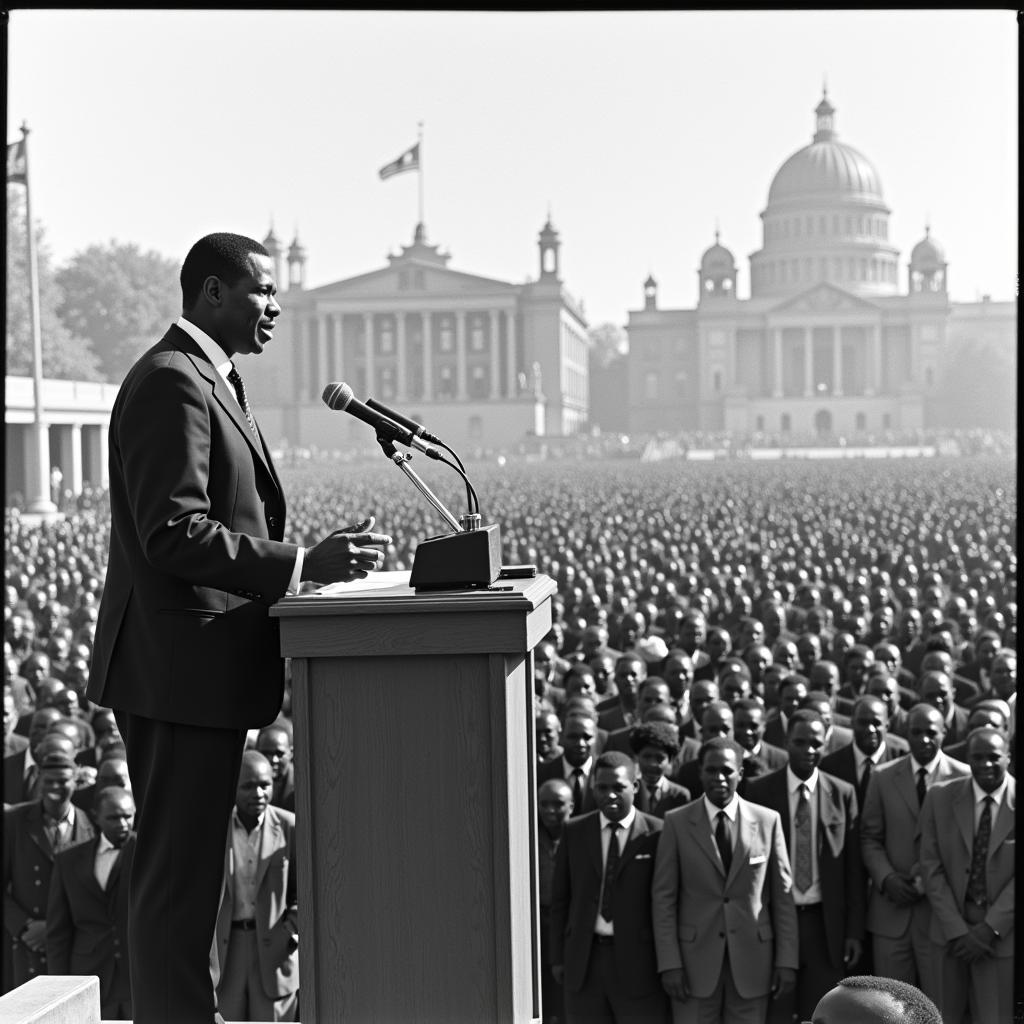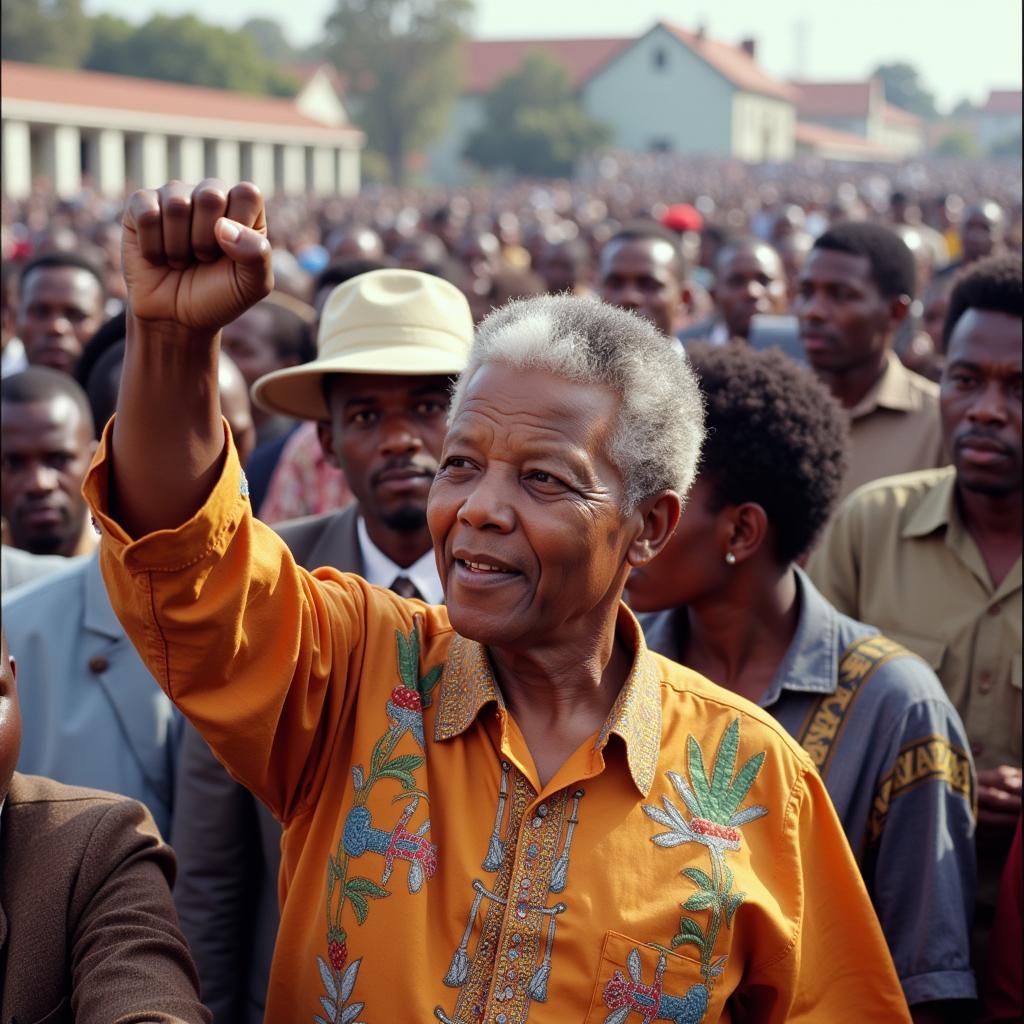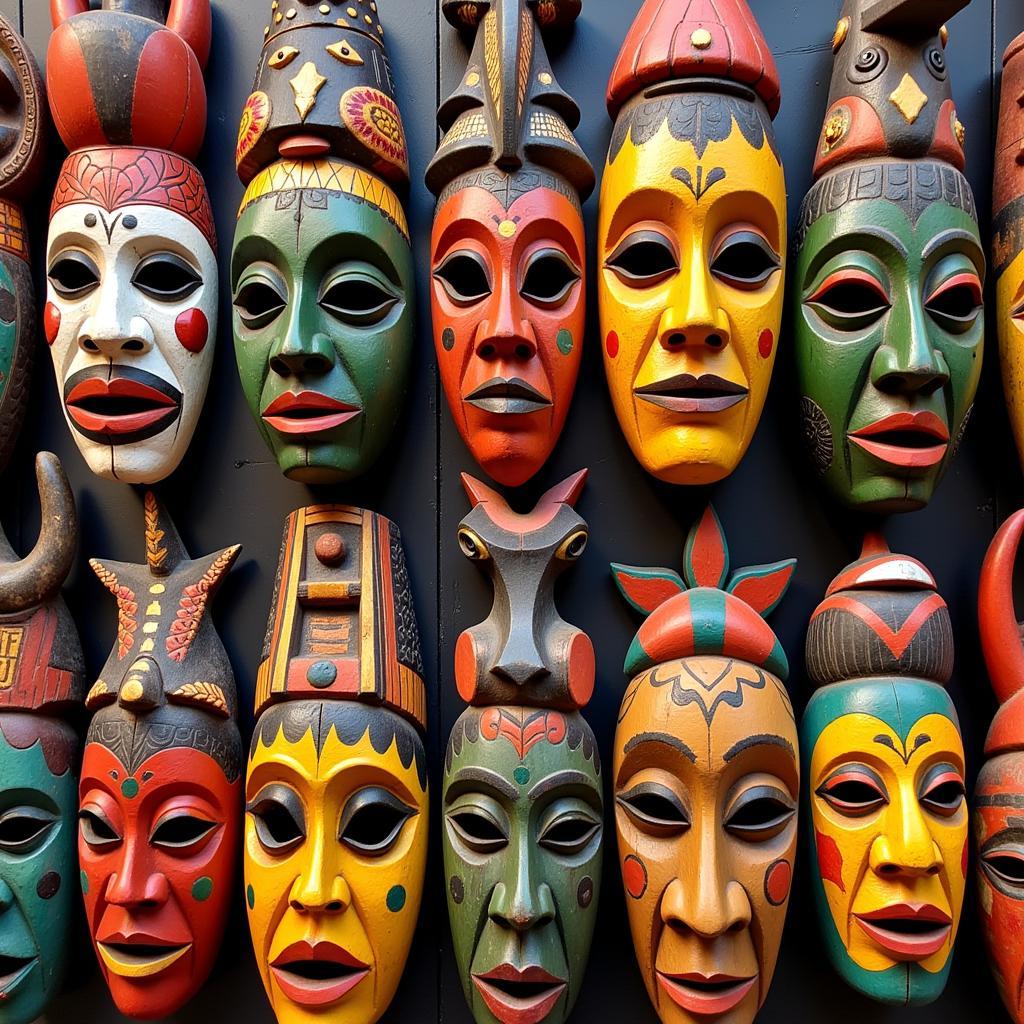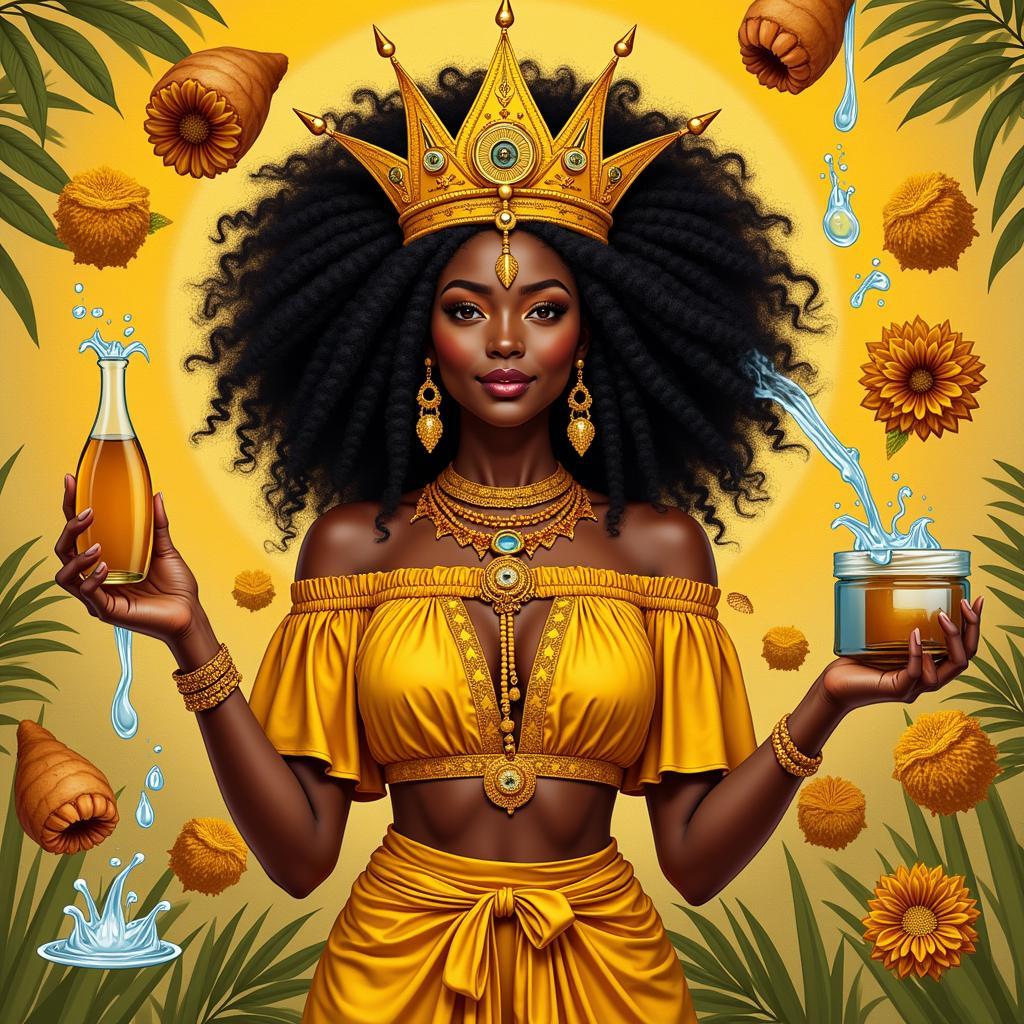African Independence Movement Leaders: Architects of a Continent Reborn
The African independence movement, a period of immense social and political upheaval, witnessed the rise of charismatic and visionary leaders who challenged colonial rule and paved the way for a continent’s emancipation. These African Independence Movement Leaders, hailing from diverse backgrounds and embracing varied ideologies, shared an unwavering commitment to self-determination and liberation. Their leadership, often forged in the face of oppression and adversity, ignited the flames of resistance and inspired generations to fight for freedom and justice.
The Crucible of Colonialism and the Seeds of Resistance
To understand the profound impact of these leaders, it’s essential to grasp the context in which they emerged. Colonialism, with its exploitative systems and disregard for African agency, created a crucible from which resistance movements inevitably arose. The denial of fundamental rights, coupled with economic exploitation and cultural suppression, fueled a growing sense of resentment and a yearning for self-governance.
 Kwame Nkrumah addressing a crowd
Kwame Nkrumah addressing a crowd
Pioneers of Pan-Africanism: Uniting a Continent
Among the early proponents of African liberation were figures like W.E.B. Du Bois and Marcus Garvey, who championed Pan-Africanism, a movement advocating for the unity and solidarity of people of African descent worldwide. Their ideas resonated deeply, transcending geographical boundaries and inspiring future generations of African independence movement leaders.
Kwame Nkrumah: Leading Ghana to the Dawn of Freedom
On the African continent, Kwame Nkrumah emerged as a towering figure in the fight against colonialism. A staunch advocate for self-reliance and Pan-African unity, Nkrumah led Ghana to become the first sub-Saharan African nation to achieve independence from British rule in 1957. His unwavering belief in the power of education and economic empowerment shaped his vision for a prosperous and united Africa.
The Winds of Change: From Algeria to Angola
Nkrumah’s success sent a powerful message across the continent, igniting a wave of liberation movements. In Algeria, figures like Ahmed Ben Bella and Houari Boumedien spearheaded a protracted and bloody struggle against French colonial rule. Their resilience and determination ultimately led to Algeria’s independence in 1962.
 Nelson Mandela raising fist
Nelson Mandela raising fist
Similarly, in Angola, leaders like Agostinho Neto and Jonas Savimbi emerged from the struggle against Portuguese colonialism, guiding their nation to independence in 1975. The fight for Angolan independence, however, became deeply entangled in Cold War politics, highlighting the complex geopolitical landscape in which these liberation movements unfolded.
Nelson Mandela and the Long Walk to Freedom in South Africa
Perhaps one of the most globally recognized African independence movement leaders is Nelson Mandela. Mandela’s unwavering commitment to dismantling the apartheid regime in South Africa came at a great personal cost, with decades spent as a political prisoner. His resilience and principled stance against racial segregation made him a global icon of peace and justice. Mandela’s leadership, characterized by forgiveness and reconciliation, was instrumental in guiding South Africa through a peaceful transition to a multiracial democracy.
The Legacy of Leadership: Challenges and Triumphs
The African independence movement leaders left an indelible mark on the continent and the world. Their struggles paved the way for the dismantling of colonial empires and the birth of new nations. However, the path to true liberation proved complex and challenging.
Many newly independent African nations grappled with the legacies of colonialism, including economic inequality, ethnic tensions, and weak institutions. In some cases, the promise of independence gave way to authoritarian rule and internal conflicts.
A Continent in Progress: Honoring the Past, Shaping the Future
Despite these challenges, the African independence movement remains a testament to the indomitable spirit of a people yearning for freedom and self-determination. The leaders of this era serve as powerful reminders of the transformative power of courage, vision, and unwavering commitment to justice.
[african freedom struggle]
Frequently Asked Questions About African Independence Movement Leaders
1. Who is considered the “Father of Africa” and why?
Kwame Nkrumah, Ghana’s first president, is often referred to as the “Father of Africa” due to his instrumental role in leading the first sub-Saharan African nation to independence and his tireless advocacy for Pan-African unity.
2. What role did women play in the African independence movements?
While often overlooked, women played crucial roles in the fight for independence. They mobilized communities, provided logistical support, and engaged in armed resistance. Notable figures include Funmilayo Ransome-Kuti of Nigeria, Margaret Ekpo, and Winnie Mandela of South Africa.
3. How did the Cold War impact African independence movements?
The Cold War significantly influenced the trajectory of many African independence movements. Both the United States and the Soviet Union sought to exert influence, often supporting different factions and contributing to proxy wars that destabilized newly independent nations.
4. What are some of the lasting legacies of the African independence movements?
The movements led to the dismantling of colonial empires, the emergence of new nations, and a global shift towards decolonization. They also inspired movements for civil rights and social justice around the world.
5. What are some resources for learning more about specific African independence movement leaders?
Numerous books, documentaries, and academic articles delve into the lives and legacies of these leaders. The African Activist Archive Project is an excellent online resource.
[african american struggle leaders]
Need More Information?
For further assistance and information, please do not hesitate to contact us:
- Phone: +255768904061
- Email: kaka.mag@gmail.com
- Address: Mbarali DC Mawindi, Kangaga, Tanzania
Our dedicated customer service team is available 24/7 to assist you with any inquiries or requests.



